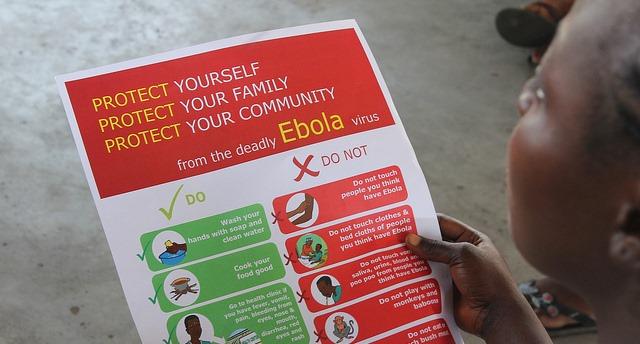Liberia's remaining two patients in an Ebola family cluster were released from the hospital yesterday, starting the clock on the 42-day countdown toward Ebola-free status, while a review of US Ebola quarantine policies found they undercut the response and violated Constitutional protections.
The first case in Liberia's Ebola cluster was announced on Nov 19, when the country was 78 days into a 90-day enhanced surveillance period after its second Ebola-free declaration on Sep 3.
Guinea is 18 days into its Ebola-free countdown, and Sierra Leone was declared free of the disease on Nov 7.
No word on source of cluster
The two patients who were discharged from an Ebola treatment unit near Monrovia are the 40-year-old father and 8-year-old brother of the family cluster's index patient, a 15-year-old boy who died from his infection on Nov 23, according to a report from Reuters that cited Tolbert Nyenswah, MPH, head of Liberia's Ebola response.
Health officials told the news service, however, that 165 contacts are still being monitored, including 30 who were at high risk, many of them health workers.
Investigators still haven't determined how the teen boy was infected, but blood tests on his mother suggested she may have had earlier exposure to the virus. Genetic sequencing can yield clues about the source of the virus, and clinicians and researchers are still working to gauge the risks of disease flares linked to survivors, who can harbor the virus in immune-protected areas such as the testes or the eyes.
Harm of US Ebola quarantines
A joint review of US Ebola quarantine policies by analysts at the American Civil Liberties Union (ACLU) and Yale University found that the quarantines imposed by states weren't medically justified and were unconstitutional.
The 46-page report said the infection and death of a Liberian man in Dallas, and illnesses in two nurses that cared for him, triggered disproportionate fear and hysteria in October and November of 2014 that led to overly restrictive quarantine measures in many states that misled the public.
In a forward to the report by Deane Marchbien, MD, president of Doctors Without Borders in the United States, said the report put responsibility for the panic on political leaders—enabled by a "fear-mongering mass media"—through ignorance or political expediency.
According to the report, about half of the states crafted policies that rejected scientific evidence on Ebola transmission, which went beyond quarantine and movement recommendations made by the US Centers for Disease Control and Prevention.
"After nearly four decades of rational American responses to Ebola epidemics, the quarantines set a dangerous precedent for dealing with future public health crises, which require sound scientific evidence to guide effective policy," the ACLU said yesterday in a statement.
Policies created logistical challenges and other problems for returning healthcare workers when the outbreak region was at the height of the outbreak, according to the authors, which said, for example, that the International Medical Corps saw a 25% drop in volunteers from the United States after the quarantines went into effect.
States didn't justify limiting asymptomatic individuals' fundamental liberties, which the report's authors said violates the 14th Amendment of the US Constitution. Maine was the only state that had due process in place to allow people to contest their quarantine orders.
It's unclear how many people were subjected to the quarantines, and it's unclear if any government agency collects the information, the groups said.
Recommendations going forward
The reviewers made a set of seven recommendations, which include no quarantine or movement restriction for asymptomatic individuals, that the least restrictive measures should be used to stem transmission, and that individuals be offered procedural protections.
They also said that health officials should be transparent about quarantine rationale and ensure humane conditions when confinement is warranted. The experts added that government officials must protect the privacy, incomes, and jobs of those who are subject to quarantine.
See also:
Dec 3 Reuters story
Dec 3 ACLU-Yale University Ebola quarantine report
Dec 3 ACLU press release

















